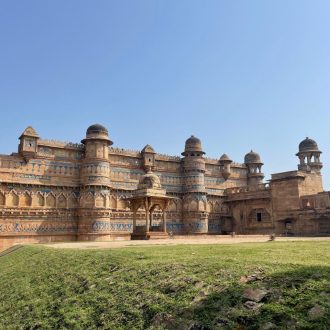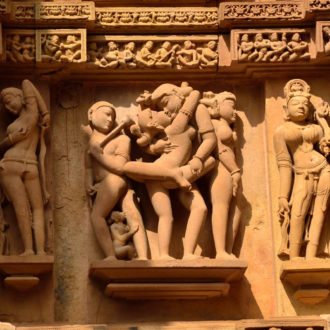Book homestays in Madhya Pradesh for authentic rural tourism
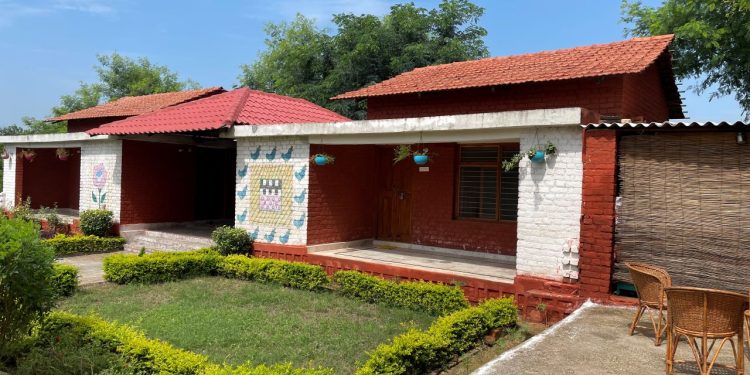
What’s in a name you may question? But if you ask the sisters-in-law, Rekha and Kamla Khushwaha, who live in a little nondescript village called Ladpura Khas located near Orchha in Madhya Pradesh, they will say it’s everything to them. Blushing and laughing, the two beautiful women, twinning in a soft pink saree playfully push each other on a rustic swing, while a community of women sits around in a makeshift hut playing the tabla and harmonium and singing Bundelhand folk songs. They are all clad in a sea of pink sarees adding a dash of bonhomie to the atmosphere. I look around and I realize that the entire village has almost gathered here to celebrate the two women and their success story, showcasing their sisterhood and solidarity. Rekha and her sister-in-law, Kamla Khushwaha married to brothers have successfully set up and run their own homestays, that are named after them. Housed in a verdant setting, it’s the board that catches my attention. It read simply – Rekha and Kamla Homestays. The homestay could have had any fancy title, but the name simply was empowering to them. And that was the underlying focus behind the rural tourism initiatives spearheaded by Madhya Pradesh Tourism – to empower women and the local communities as they take ownership of their lives and livelihoods by developing homestays in Madhya Pradesh in the rural hinterland.
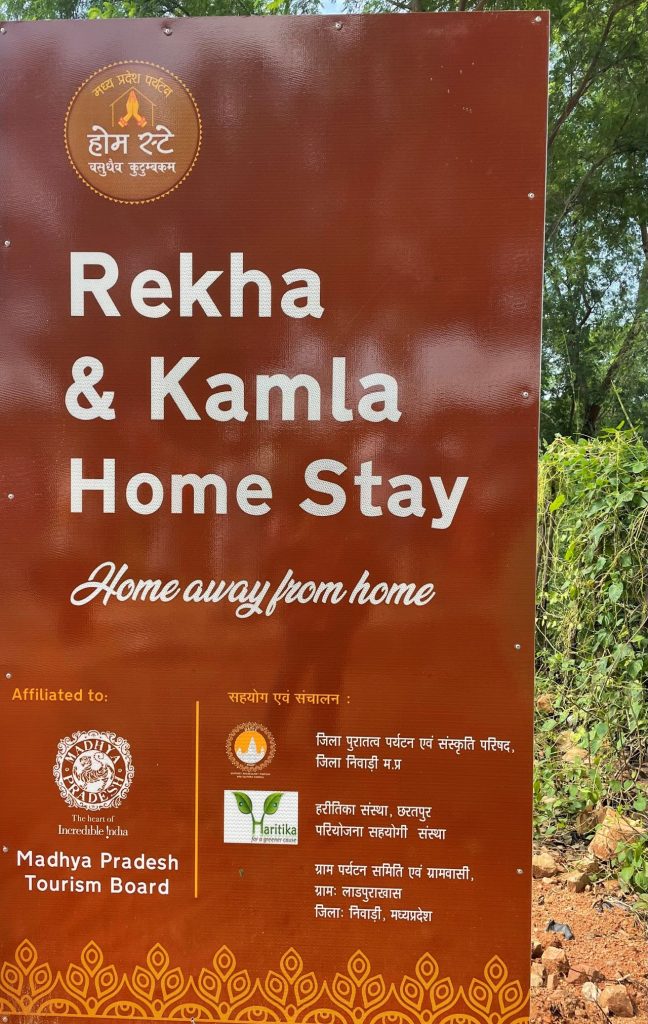
Ladpura Khas had been nominated by UNWTO a year ago for the Best Tourism Village and you can see why. Kamla and Rekha’s homestays are just one among the six homestays that are now available for tourists to experience authentic rustic tourism. Their husbands who are farmers let the women manage the homestays.
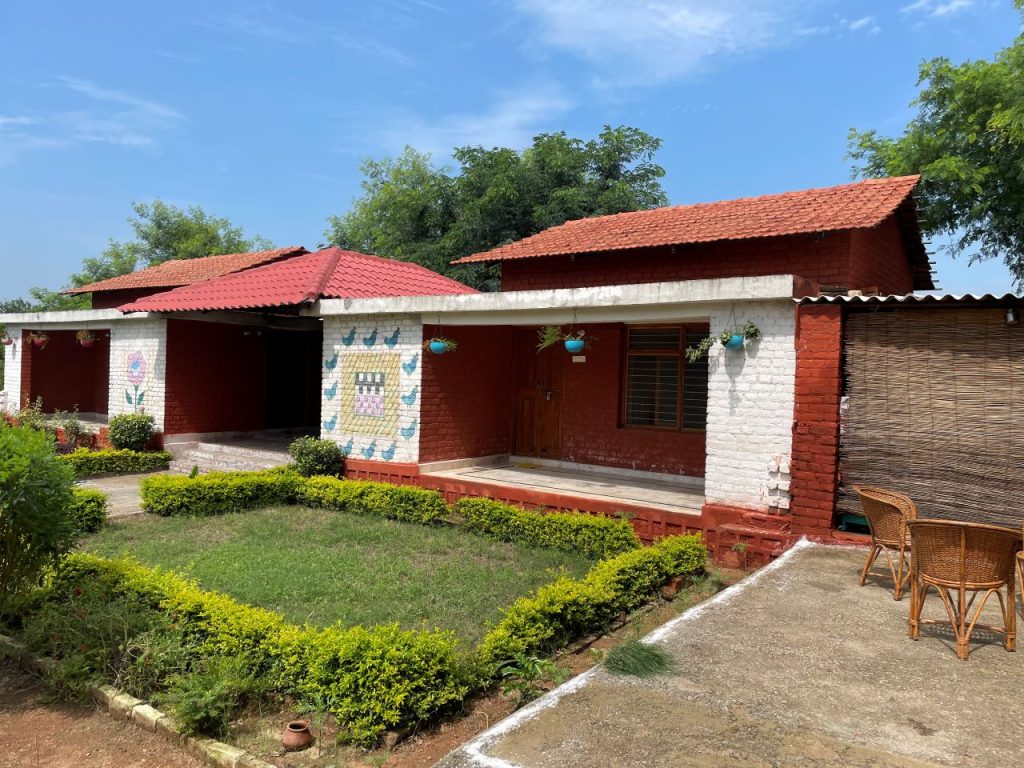
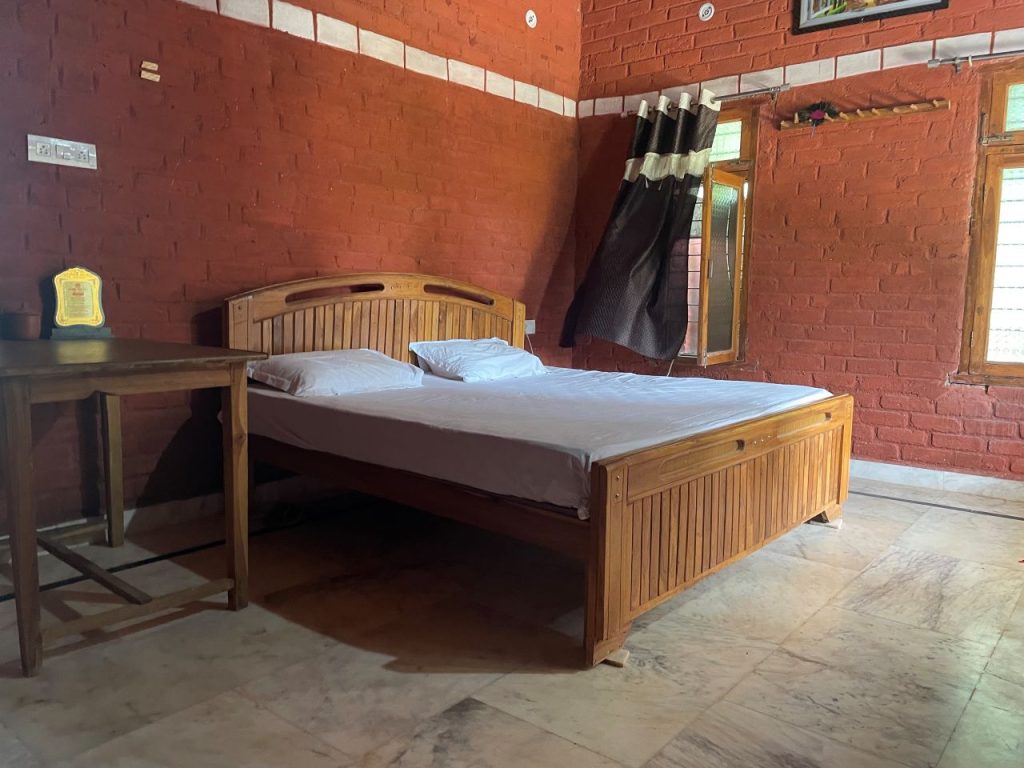
Built with local sustainable materials, the traditional homestay is rustic but is clean and hygienic with modern amenities including clean western toilets. The brothers grow a variety of crops on their sixteen-acre land from wheat, pulses, and groundnut to seasonal vegetables and they also own a small herd of cattle as well. “Initially we earned only through farming and it was not always a stable income, ” they said.
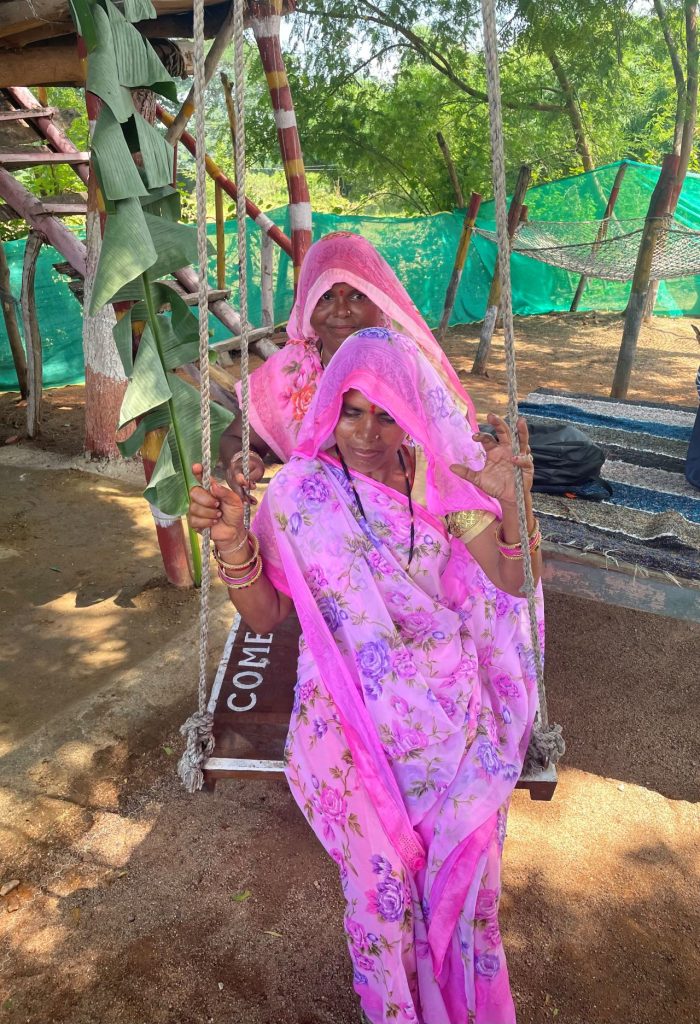
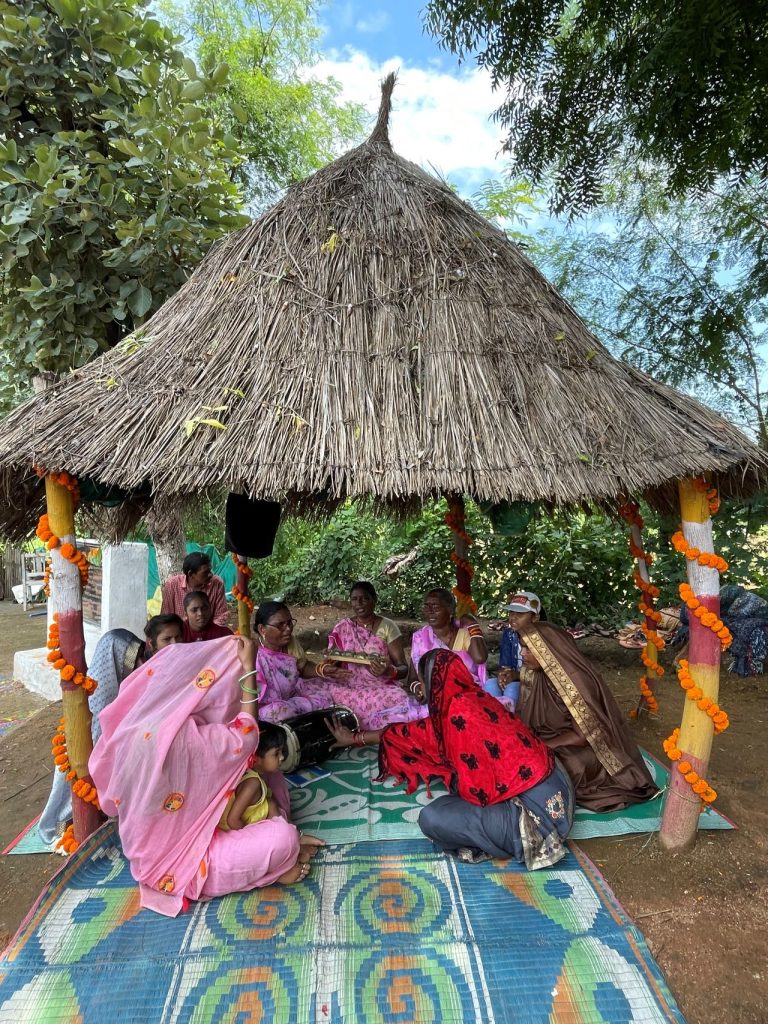
The enterprising women sensed an opportunity when they heard of the initiative from the local NGOs and goaded their husbands to build two extra rooms adjacent to each other. Built near their homes the homestays were ready within four months. It cost them six lakhs for each homestay but the tourism board had provided a subsidy of Rs. 2 lakh for each of them. They also trained them and assisted them with design and construction and advised them on drainage, waste management, and other basic requirements through local social enterprises and architects.
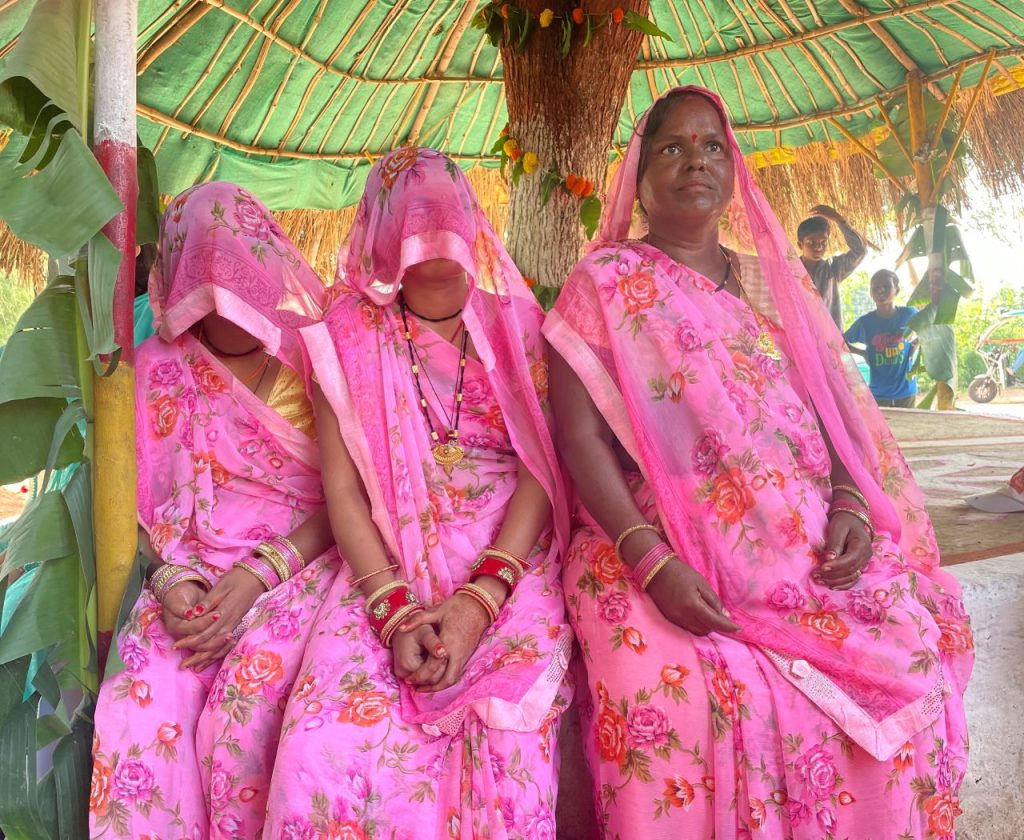
As the music reaches a crescendo, the sisters tell us that they had opened it for guests after the lockdown and over 170 guests had visited Rekha’s home while another 160 had stayed with Kamla to date. They add with pride that the guests have visited them from all over the country – from Bangalore to Noida, besides repeat guests as well. The women charge Rs 2000/- a night which includes all meals. They smile adding that they have earned a little more than a lakh of rupees already.
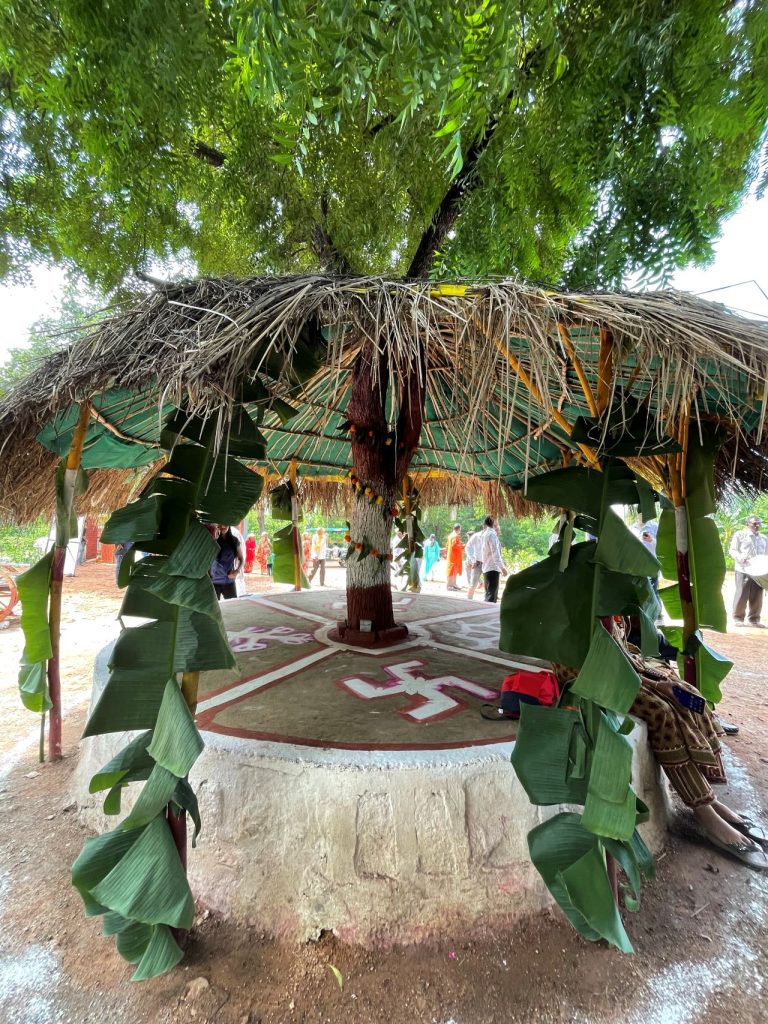
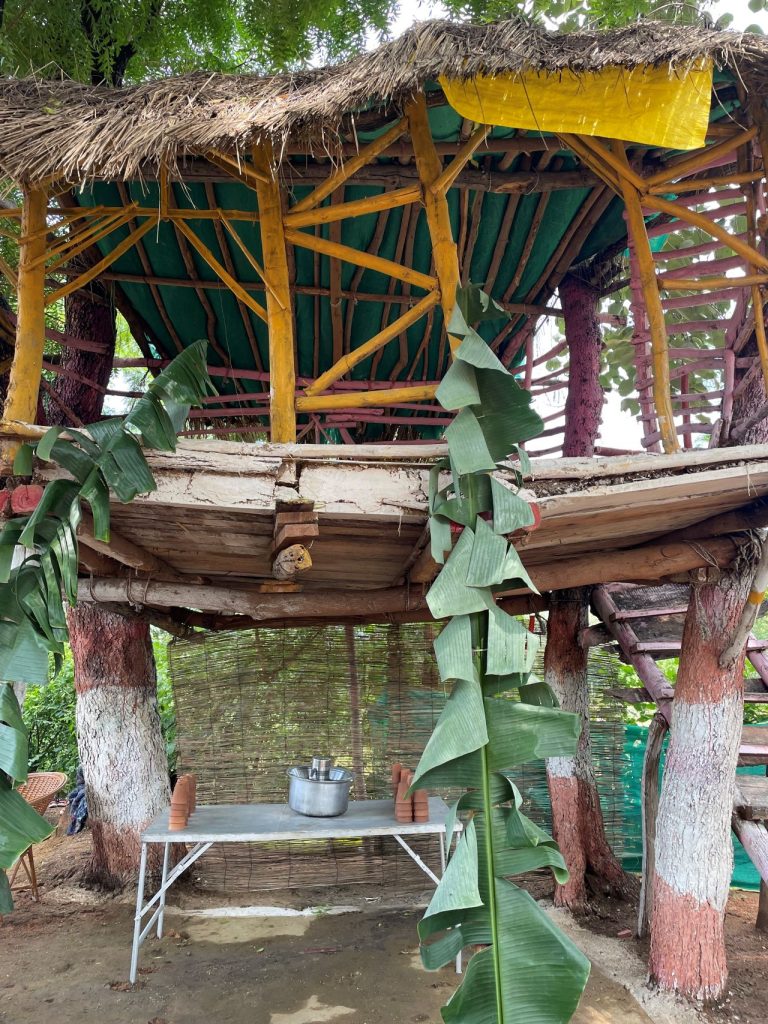
Pottering around, I am almost tempted to stay here myself. Children are running around playing Gilli Thanda. There is a small machan or a rustic tree house. The lush fields beckon me. The cuisine is delicious, authentic, and traditional, Farm to the table may sound like a modern concept but for these women, it’s part of their daily routine as they use fresh seasonal vegetables grown on their land to cook a meal for the guests. And even if there is no wifi or tv, you don’t miss them as you sit under the trees, sipping a cup of chhach and listening to the robust singing and losing yourself in the heart of India. Rekha and Kamla Homestays and other homestays in Madhya Pradesh can be booked on MPhomestay.mponline.gov.in besides other online platforms as well.
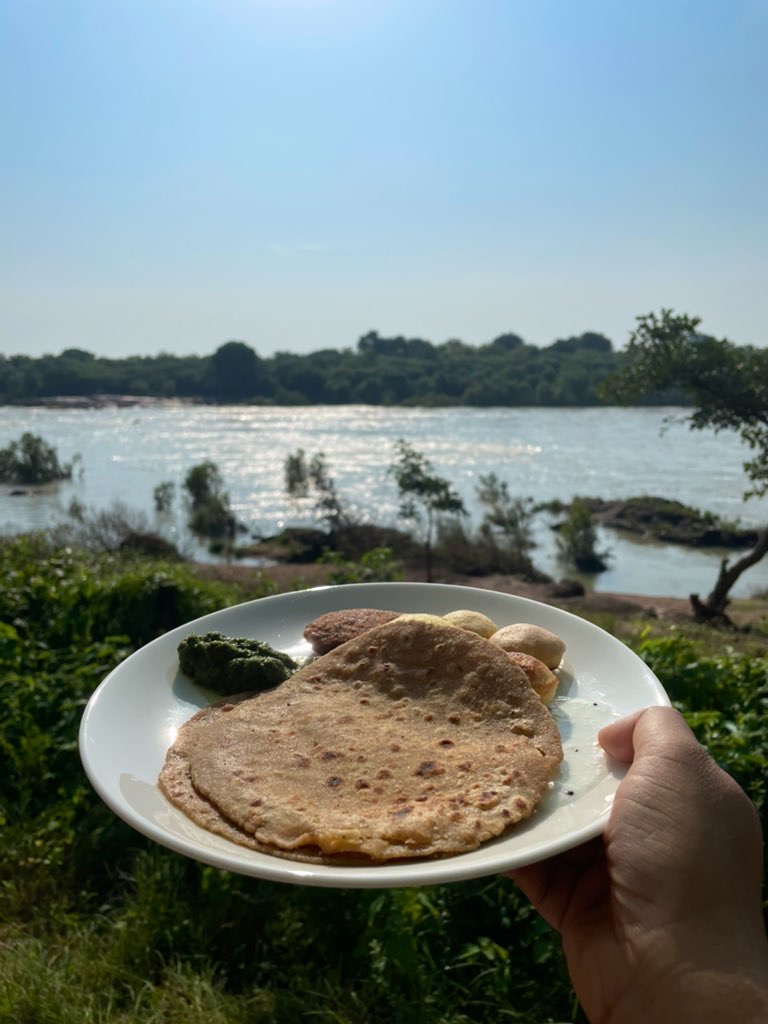
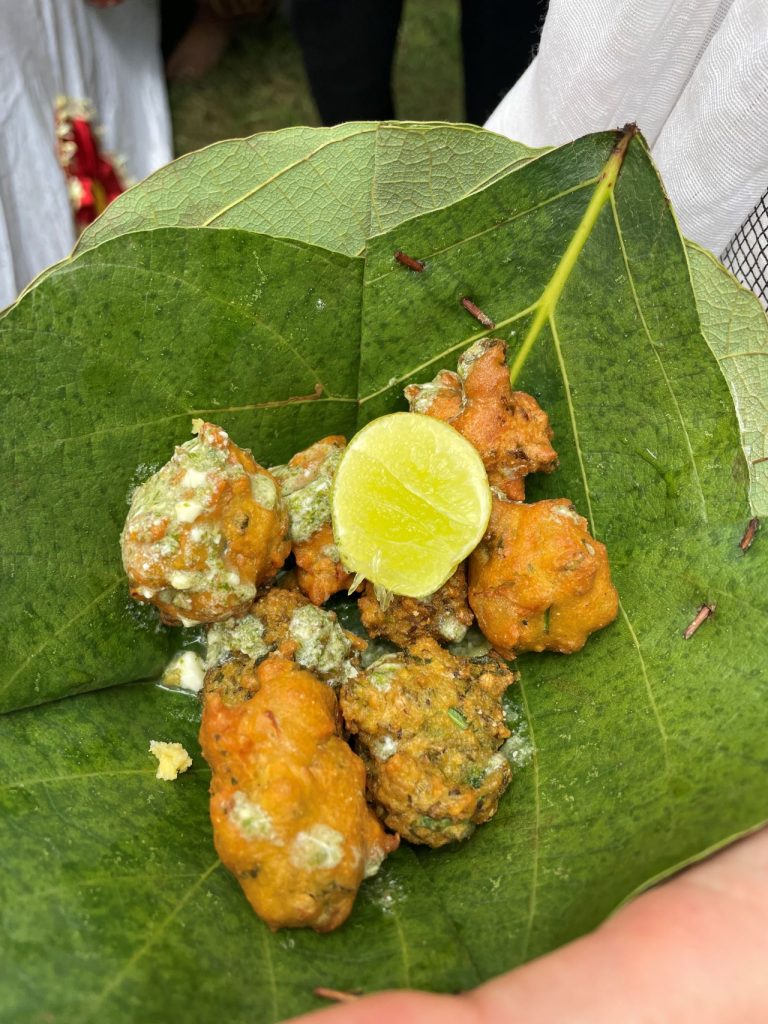
We later visit two more homestays in Ladpura Khas, the charming Mahua Hill View Homestay managed by Uma Pathak who lives with her husband, Sandeep, and son Anikhet and Vandana Sharma’s Sheetla Greens which is more like a formidable fort that opens into lush fields. The homestays are clean and rustic but the vibe is cheerful and relaxing. Nature wears her best cloak as the children are playing with gay abandon. This is where tradition meets contemporary as every homestay lends a unique cultural touch with local cuisine surrounded by rustic landscape, and offers modern amenities. Every little detail is taken care of, from the aesthetic and design to the sourcing of local materials and the actual construction. For a moment, I feel like I am in a lovely boutique property
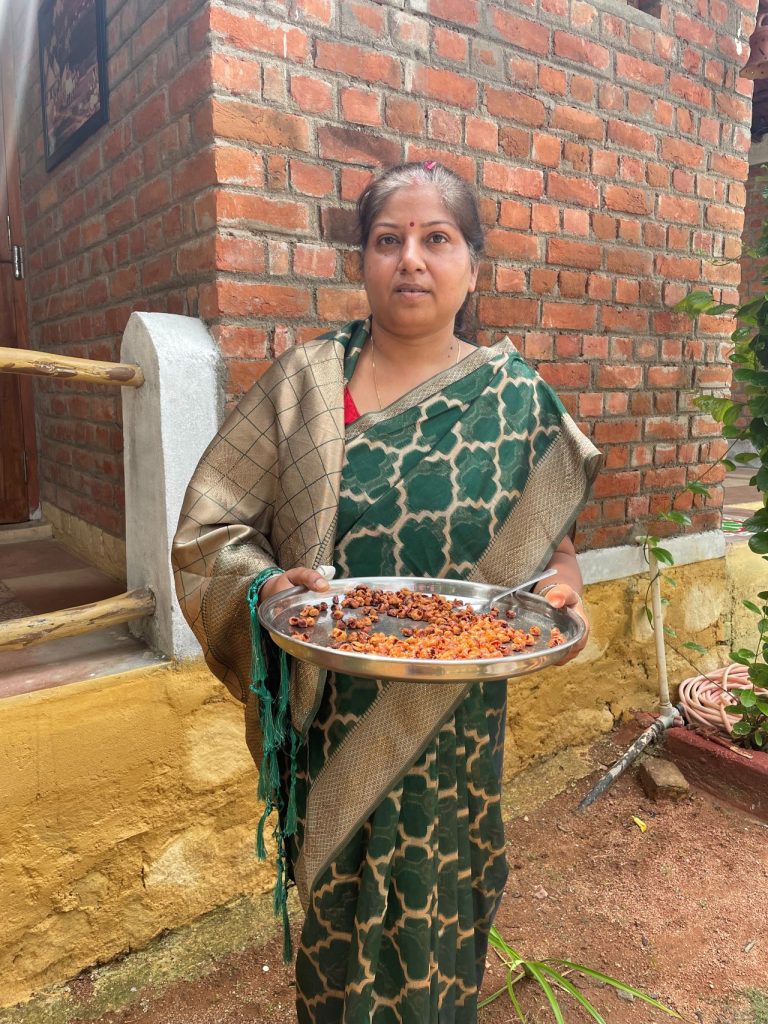
Uma who is a graduate had heard about the homestay initiative through Haritika, an NGO, and the technical support was provided to her by BIOME Architects from Bangalore. The project was initiated by the MP Tourism Board through the NGO and the family was also given a subsidy of two lakhs rupees as well. Besides Uma, her mother Kamala Sharma also manages another homestay called Mahua Homestay. As we leave, Uma gushes that she feels so elated to be staying in a village like Ladpura Khas which has brought her over 150 guests from all over the country that she feels like a celebrity.
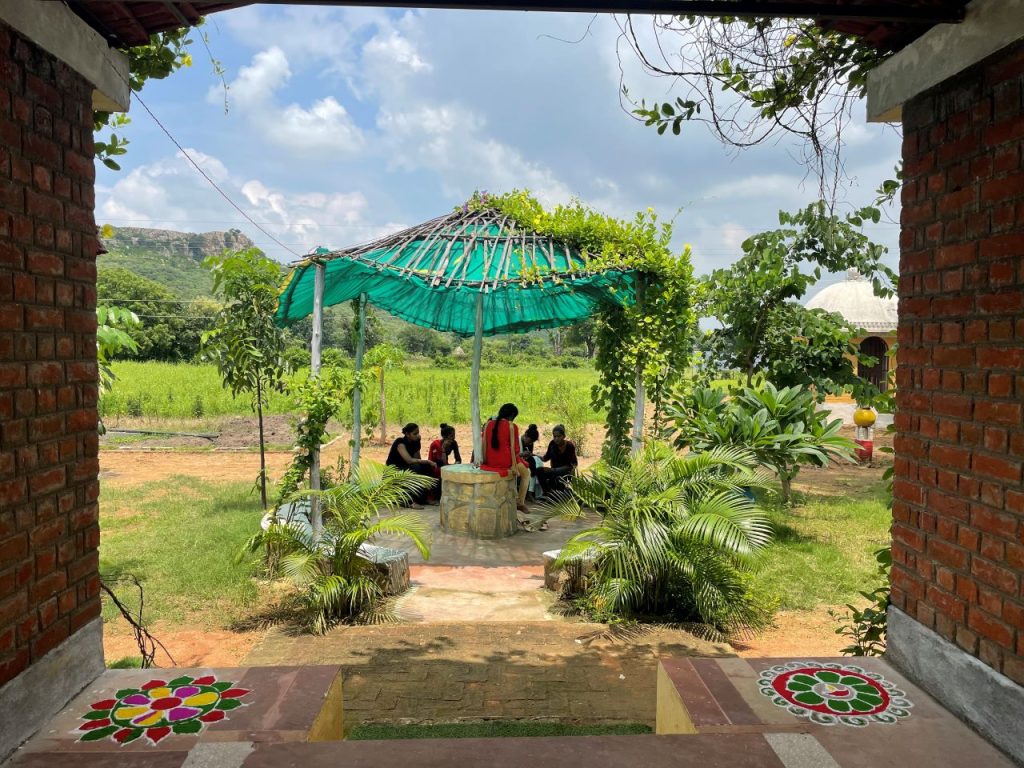
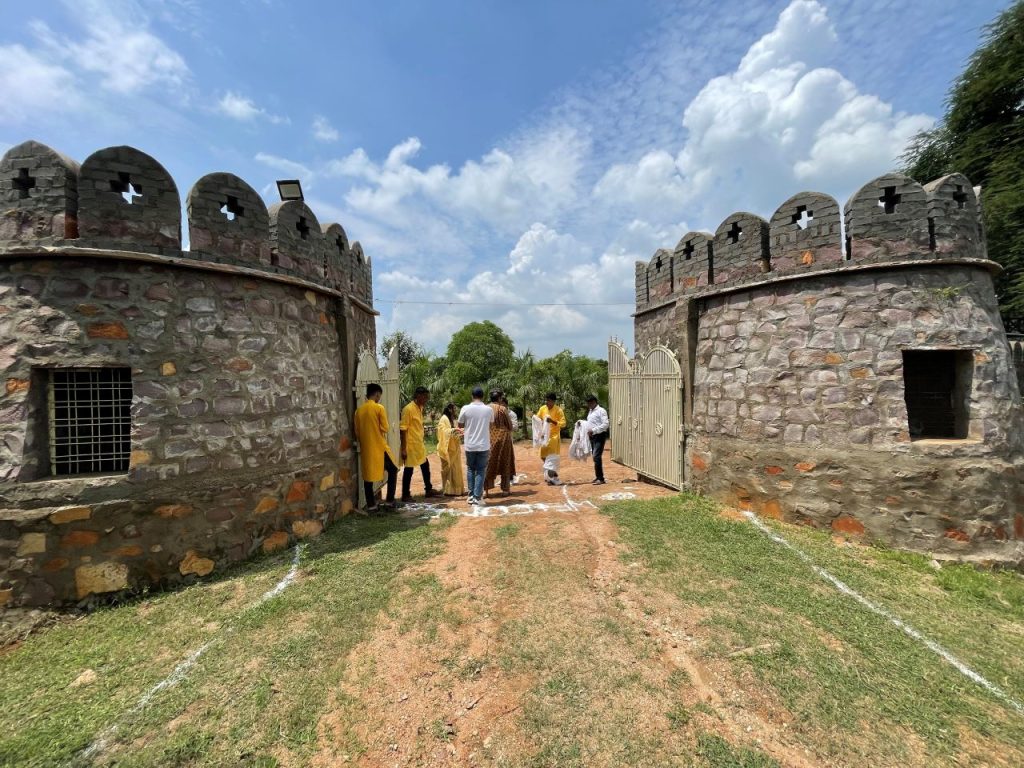
Ladpura Khas is not the only village where homestays in Madhya Pradesh have been developed. Madla near Panna and Mitavli near Morena, for instance, are other examples as well . However, the vision is to identify a hundred villages across six cultural zones that are located near tourist circuits and promote rural tourism in these hamlets. Besides setting up homestays and tented camps, there were also plans to create cultural and heritage tours around the region to promote local cuisine, develop arts and crafts, preserve forgotten cultural traditions, and focus on the conservation of eco-sensitive regions.
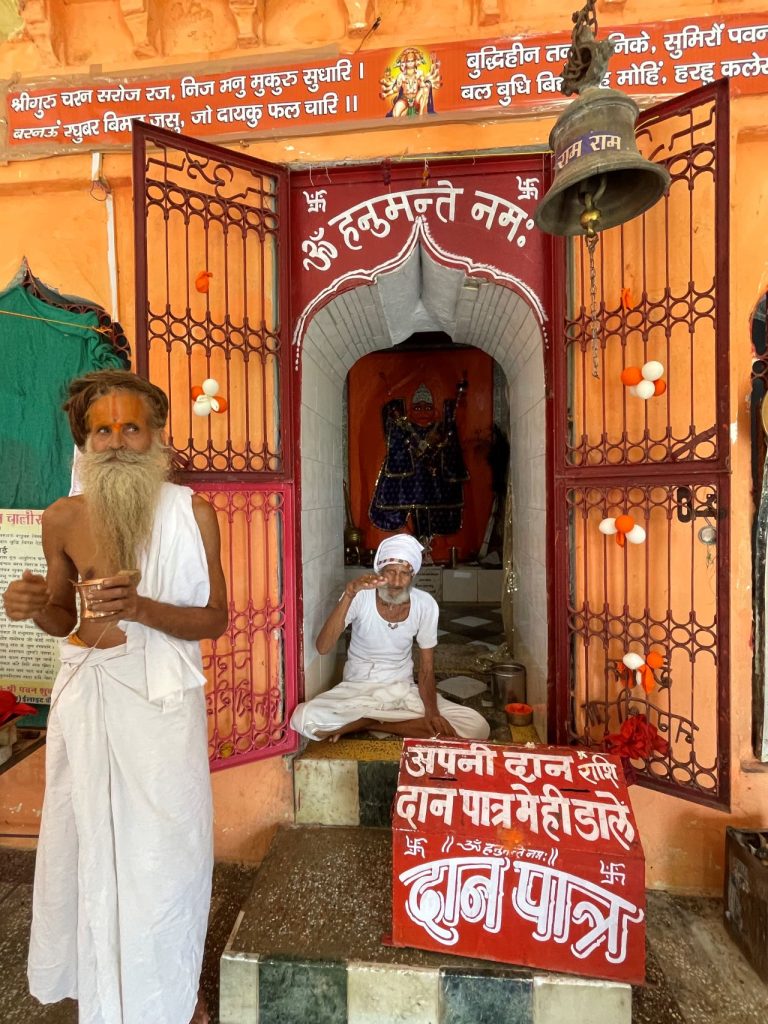
There are cultural immersions where guests can stay in the homestays in Madhya Pradesh and learn about local traditions and festivals, and arts and crafts or visit offbeat sites, camp outdoors, hike in forests, or have a picnic in the fields. We visit local temples and explore the wilderness to see dazzling sunsets. We also watch a kabaddi match between two villages, take part in a local cultural festival, and gaze in awe as young children mastered the art of acrobatics at the traditional Mallakhamb. Every experience is unique, authentic, and rustic.
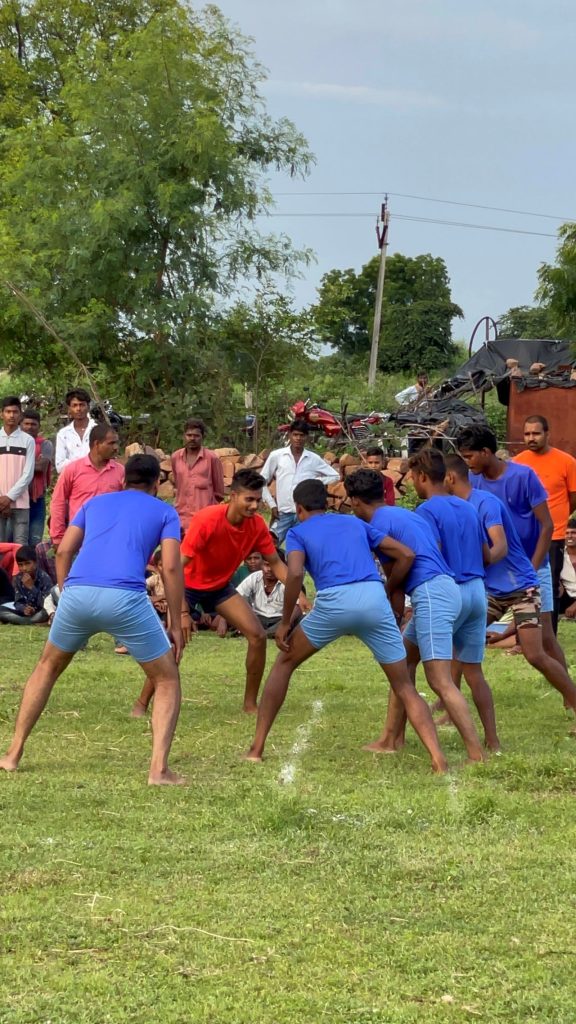
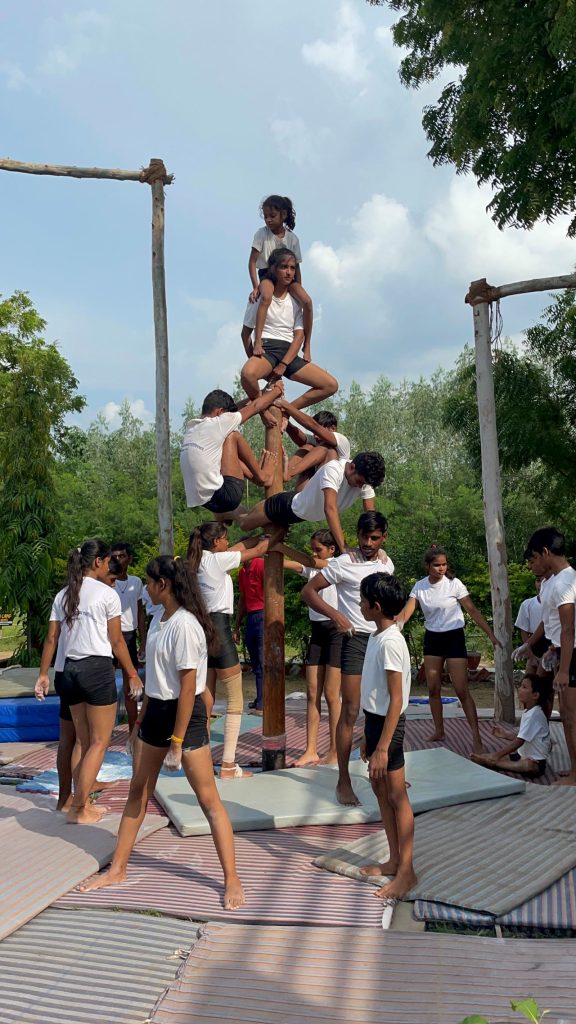
It was only recently that I had been on a tribal tourism trail of Madhya Pradesh and on the very first day, Mr. Sheo Shekhar Shukla, Principal Secretary, Tourism, and MD of MP Tourism Board had told us that the world of the tribals is very fascinating, but it is very important for us to leave our rational thinking minds and our scientific temperaments aside when we interact with them. He also mentioned that plans were afoot to create homestays and offer immersive experiences in the tribal belt as well, keeping in mind sustainable and responsible tourism initiatives. And on this trip, he added that rural tourism in Madhya Pradesh has been developed along the same lines, ensuring it is authentic and inclusive and the communities benefit from the initiatives.
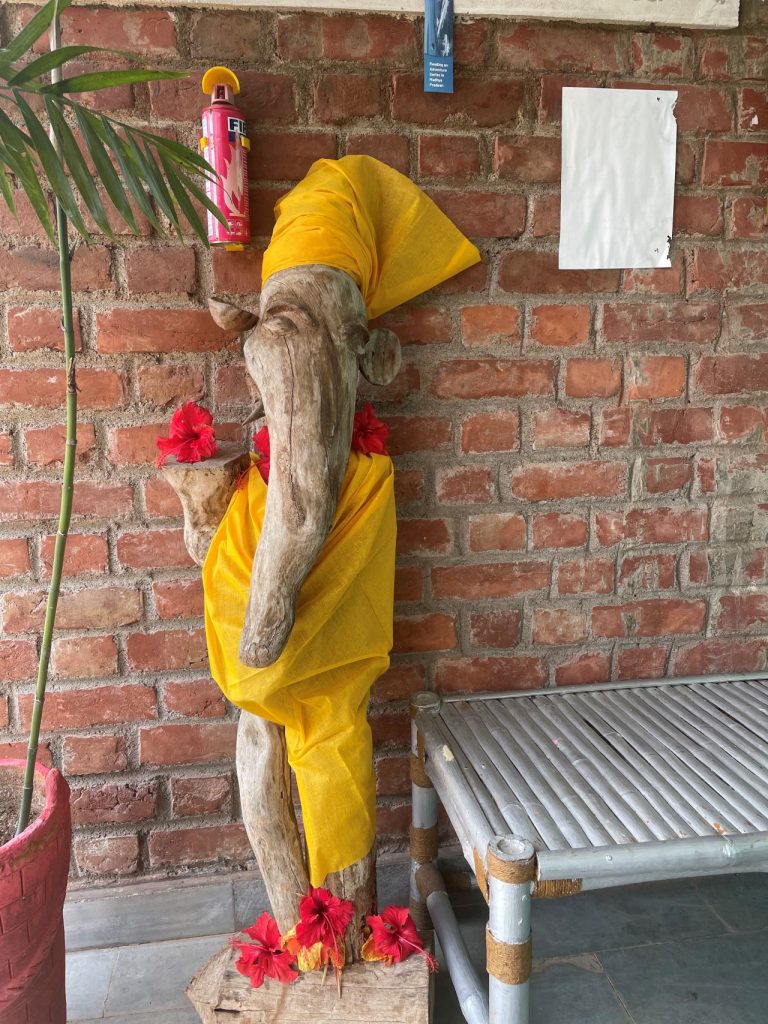
Speaking to Dr. Manoj Singh, who is the Director, of Skill with Madhya Pradesh Tourism Board, I can understand why the emphasis is on promoting rural tourism as empowering communities is at the core of every project. “It is an ongoing initiative and what you have seen are just the baby steps that we are taking right now, ” he adds. And setting up homestays in Madhya Pradesh is the first step in creating livelihood opportunities as well.
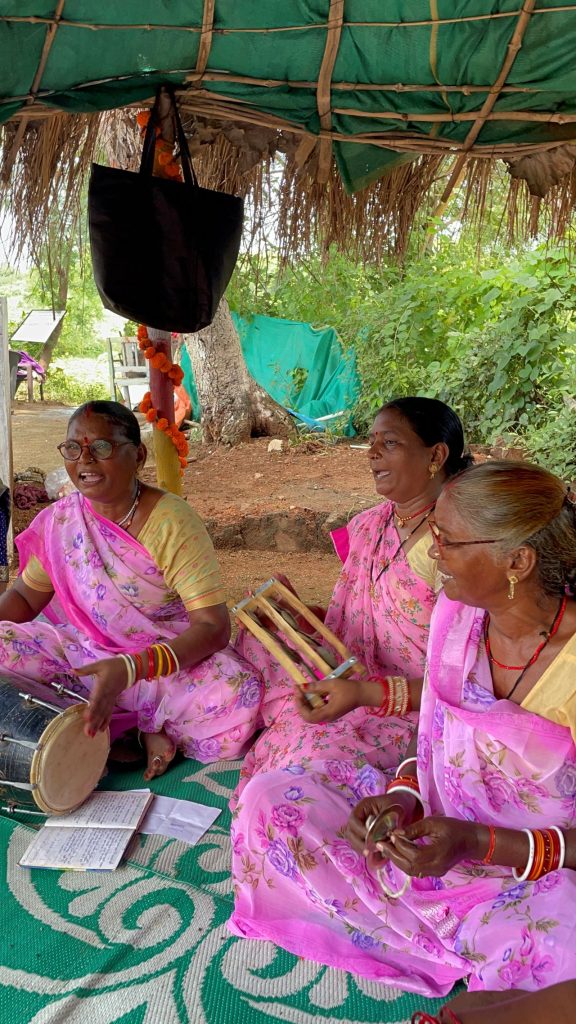
While I can see the excitement on the faces of the people, I am simply overwhelmed to see the enthusiasm of the young team working with Manojji who are highly committed to the project. Speaking to the hosts and hostesses, we learn that they have been supported at every step by the local bodies while the team from the tourism board has monitored the progress brick by brick literally. However for me, it’s the personal bonding, the camaraderie, and the intimate connection they share with all the villagers that speak volumes about their passion and involvement, a commitment that goes beyond official presentations.
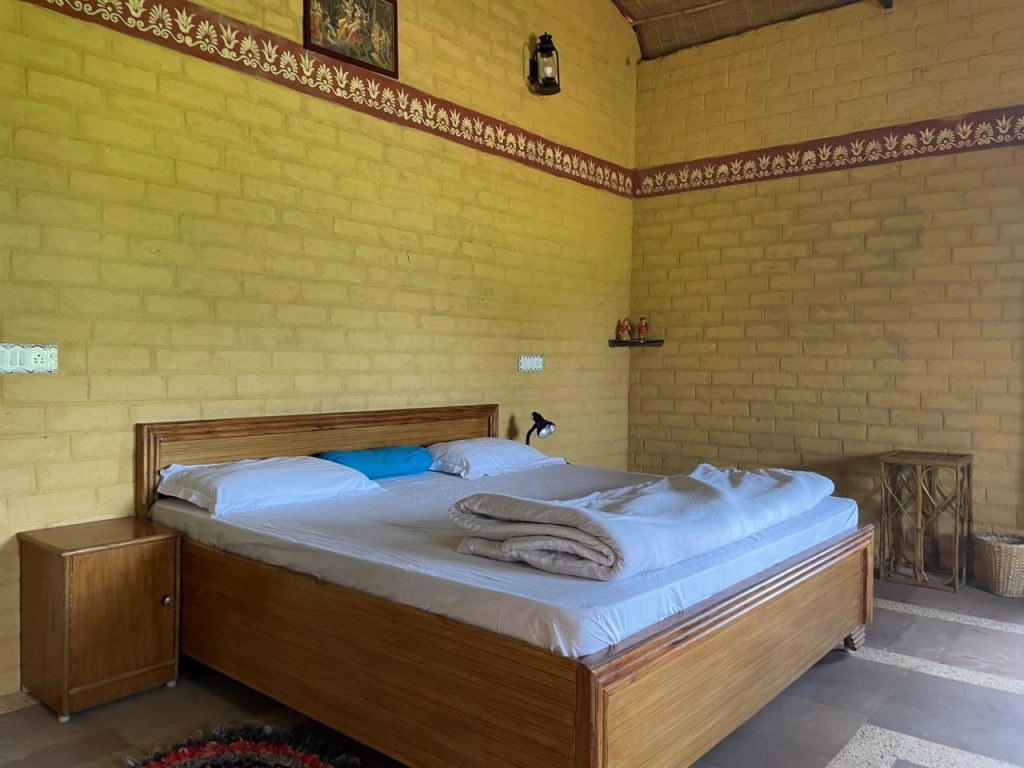
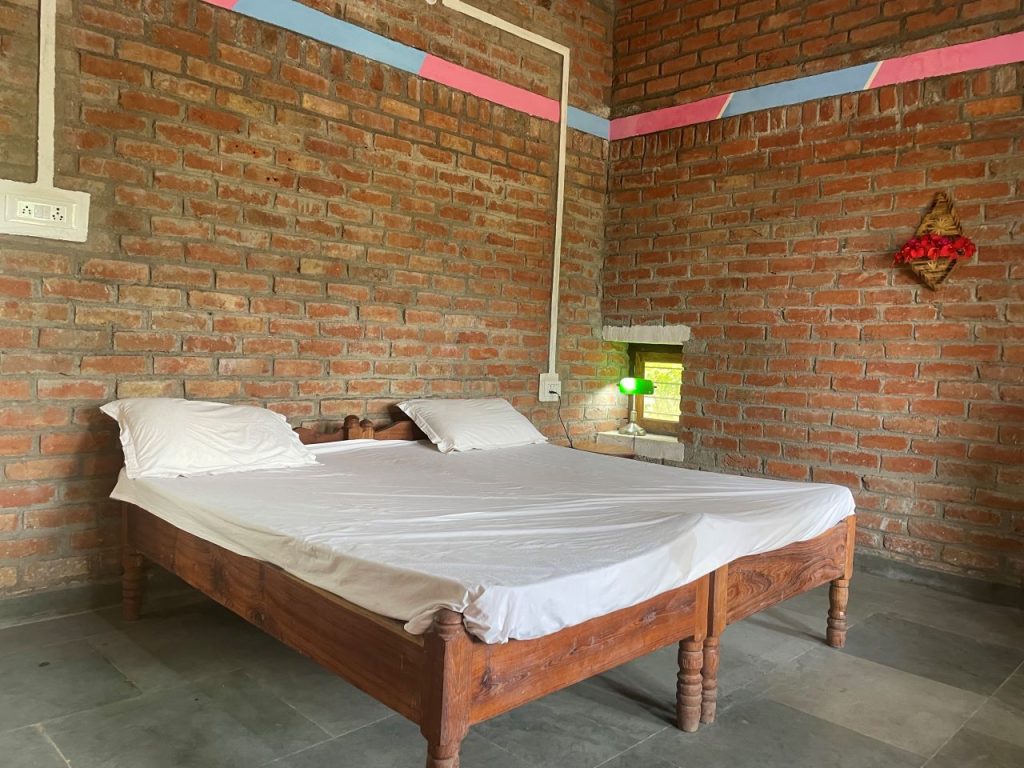
I will be honest and say that am pleasantly overwhelmed as I didn’t expect this from any tourism board, as they are usually more focussed on promoting destinations and experiences, and any rural or responsible tourism initiative is largely left to the social enterprises with just some token support from the government. The pride and commitment here, however, were so inspiring that it personally made me rethink my role as a traveller and a storyteller too. And to me, personally, this is a journey that made me realize that we have a responsibility towards the communities too and not just the destinations, because like I always say, people make places.

